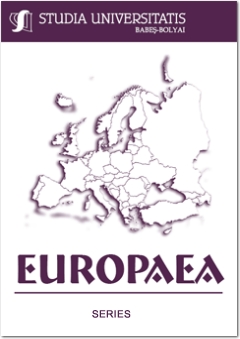DIE ROLLE DER EVANGELISCHEN KIRCHE A.B. BEI DER ERHALTUNG DER NATIONALEN IDENTITÄT DER SIEBENBÜRGER SACHSEN
THE ROLE OF THE EVANGELICAL CHURCH A. B. IN PRESERVING THE NATIONAL IDENTITY OF THE TRANSYLVANIAN SAXONS
Author(s): Paul ŞeuleanSubject(s): History
Published by: Studia Universitatis Babes-Bolyai
Keywords: Saxons; nationality; ethnic group; Evangelical Church A. B.
Summary/Abstract: The article introduces some nuances in the discussion concerning the categories of nation, nationality and ethnic group. The Germans of Transylvania, commonly called the Saxons, settled in the 12th and 13th centuries between Orastie and Brasov in the southeast and in the northeast around Bistrita. In order to preserve their autonomy and privileged situation as town people or free peasants, the Saxons strove for an administrative unity that could be exercised also in remoter areas. They wanted a general representation, autonomous administration and own jurisdiction for all the Transylvanian Saxons and they achieved this finally in 1486. Their religion and their autonomous church gave them another bond of unity that persisted after the "Universitas" had been abolished. I present some of the most important roles of the Evangelical Church A.B. in preserving the national identity of the Transylvanian Saxon. The church played a vital role in creating a social consciousness. The main purpose of this article is to bring a new perspective in the research of identities by combining the legal and sociolgical aspects.
Journal: Studia Universitatis Babes-Bolyai - Studia Europaea
- Issue Year: 55/2010
- Issue No: 2
- Page Range: 125-146
- Page Count: 22
- Language: German

